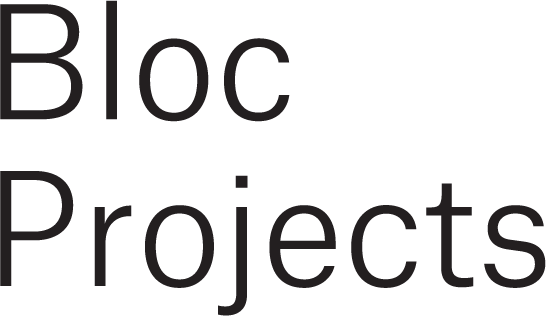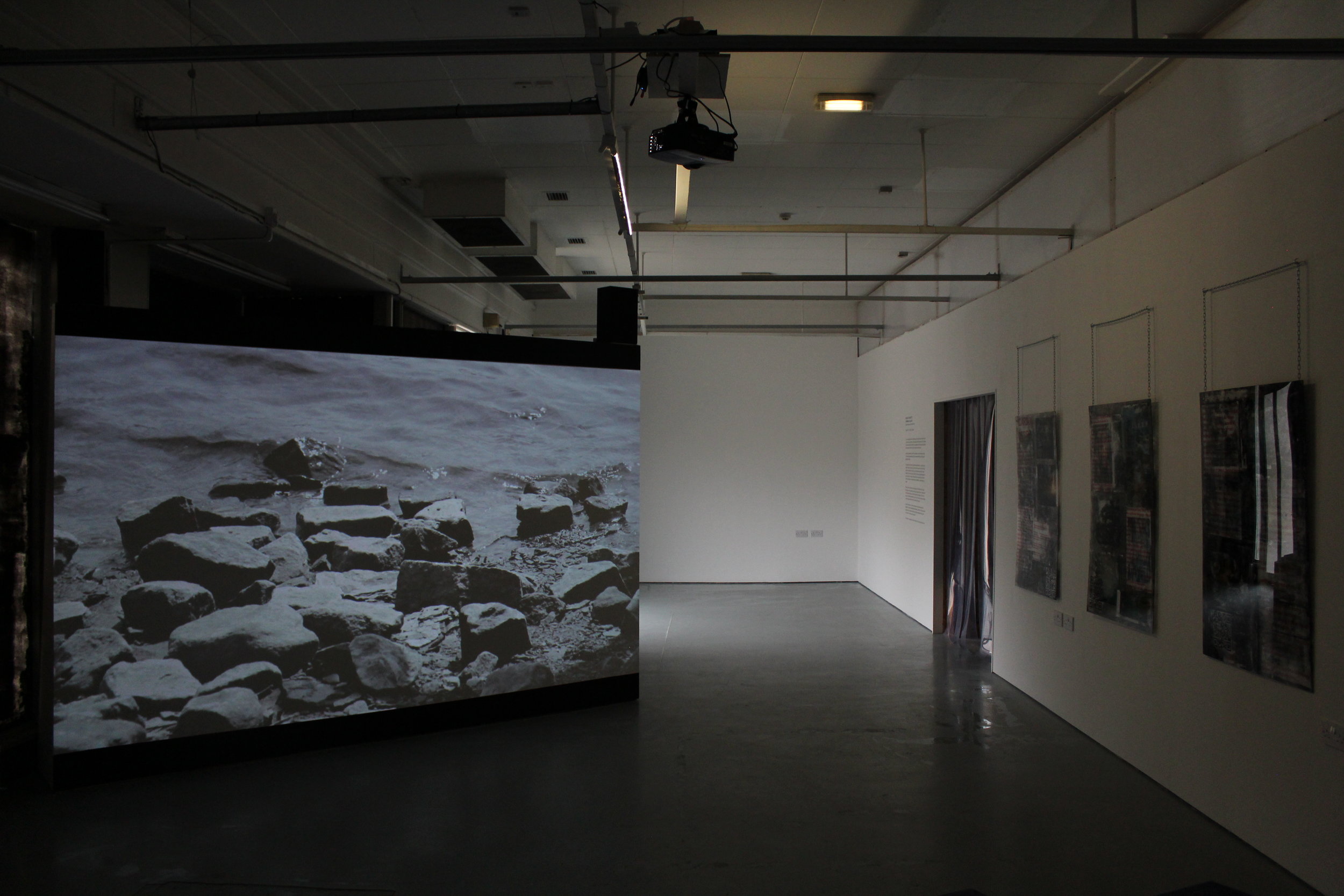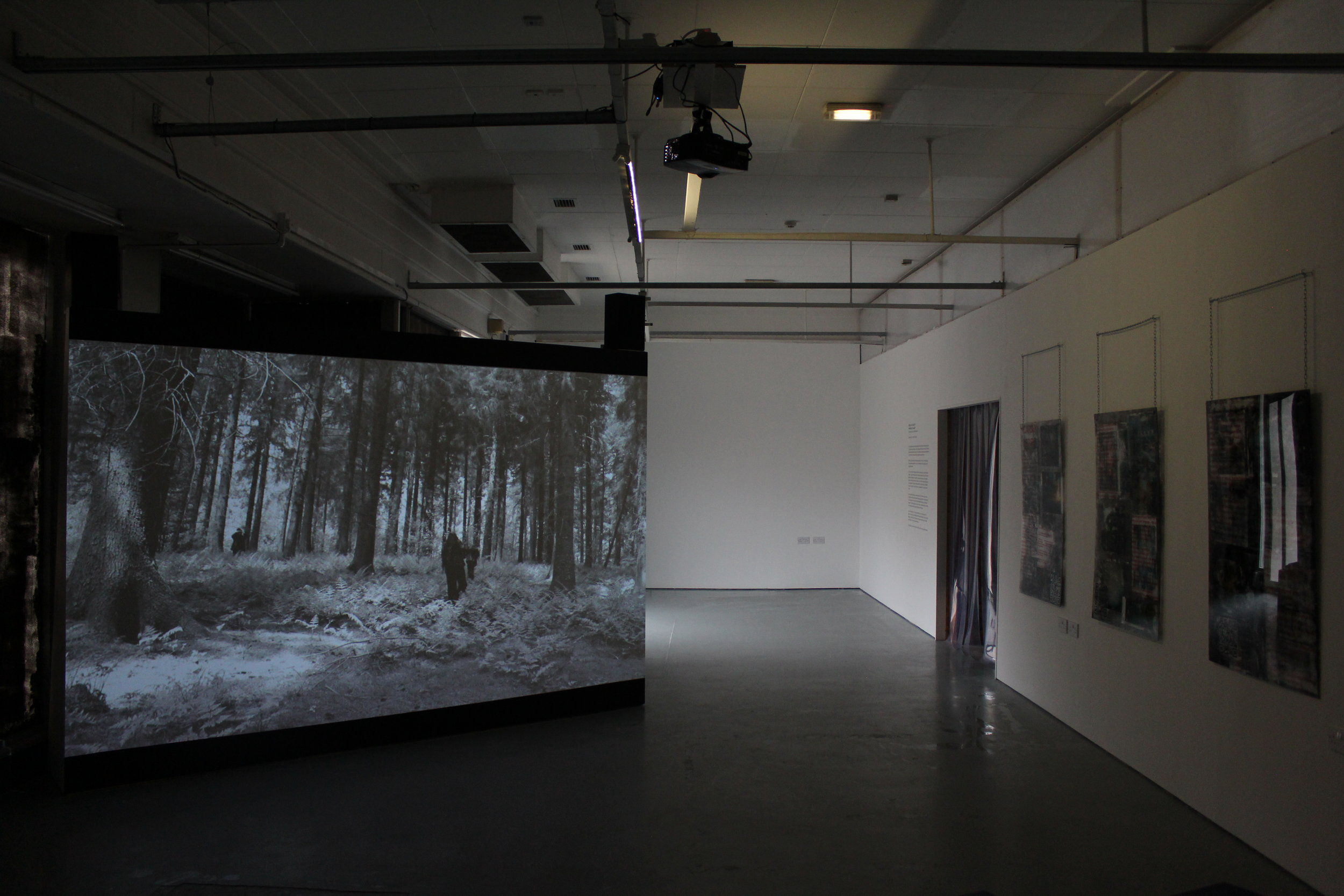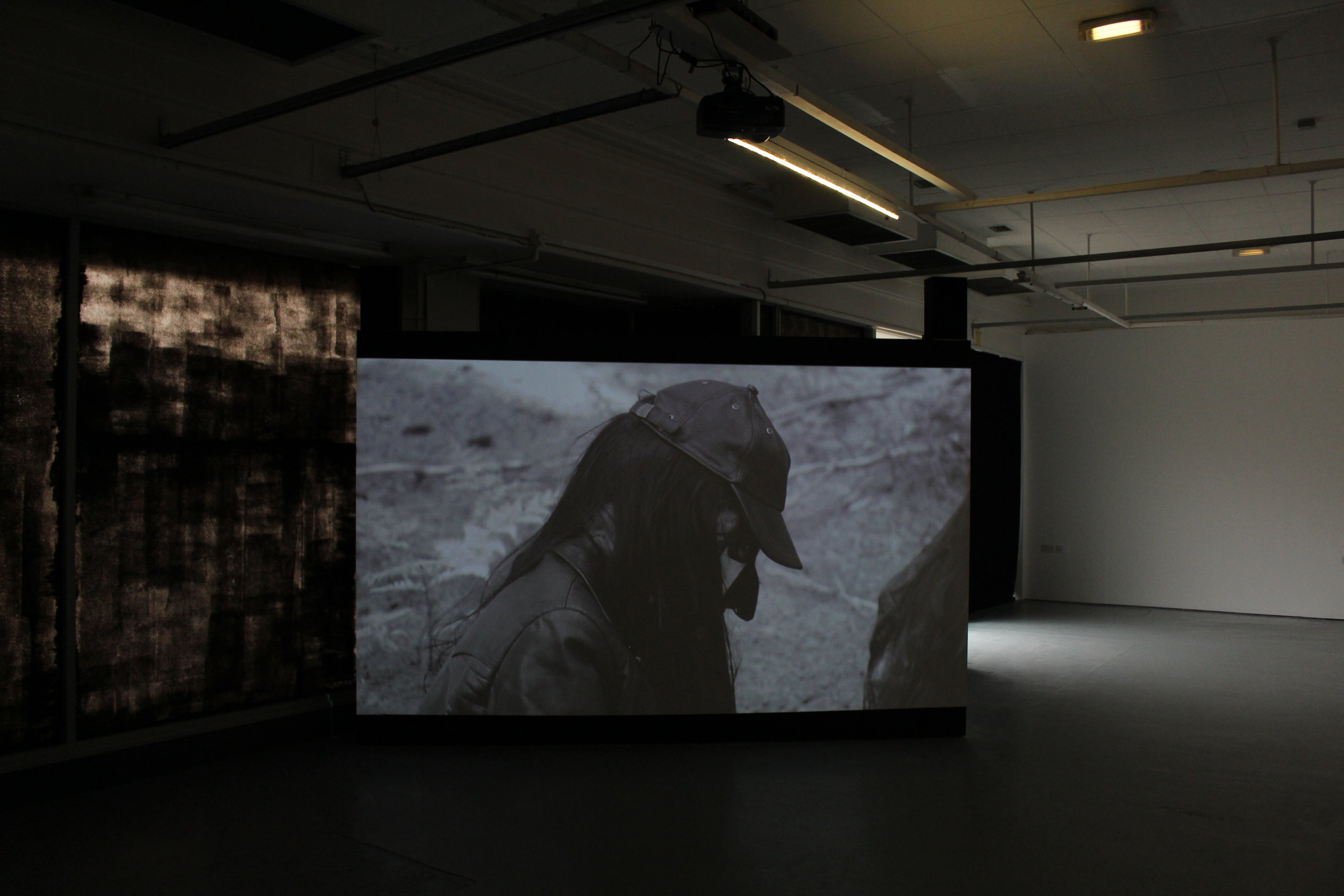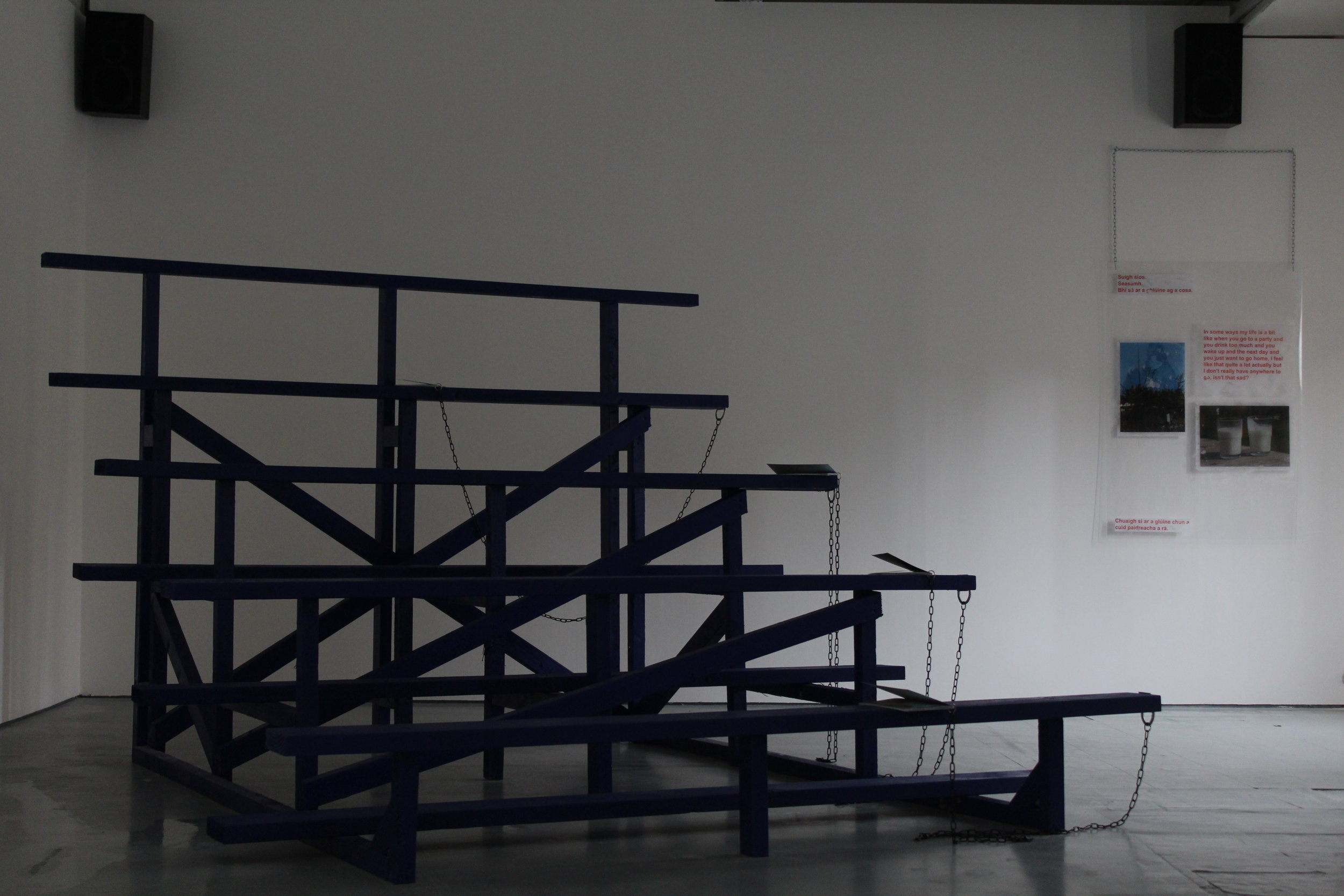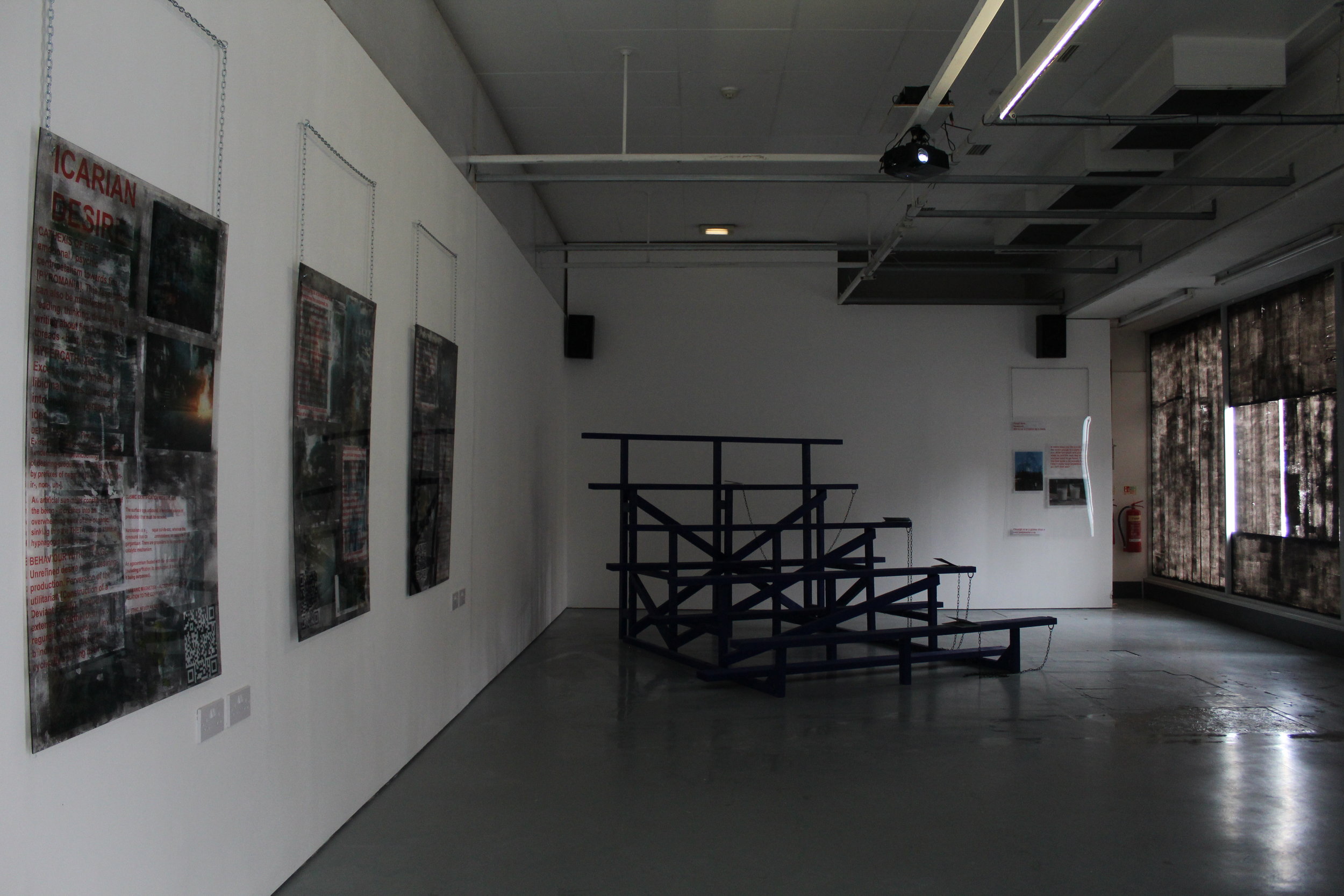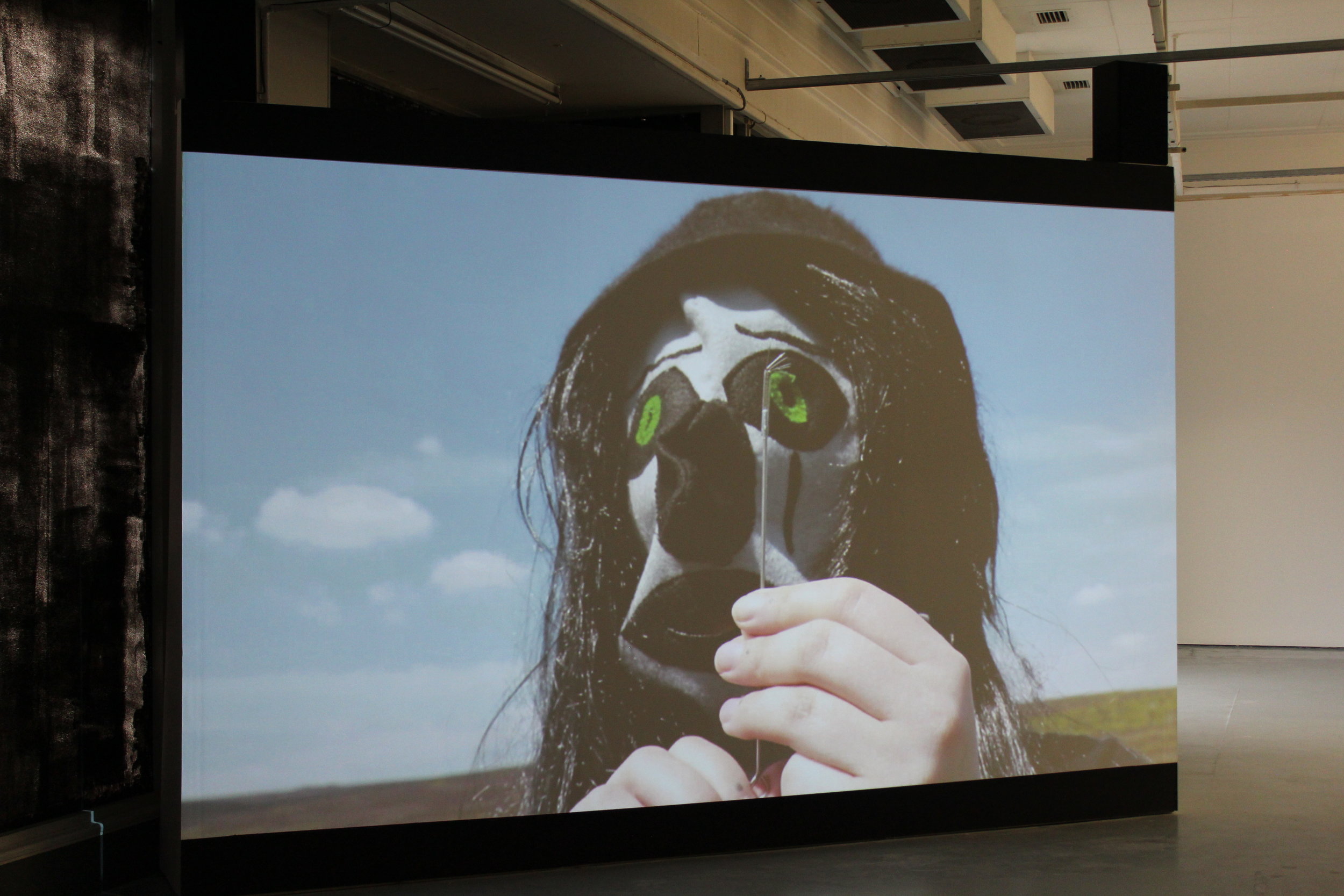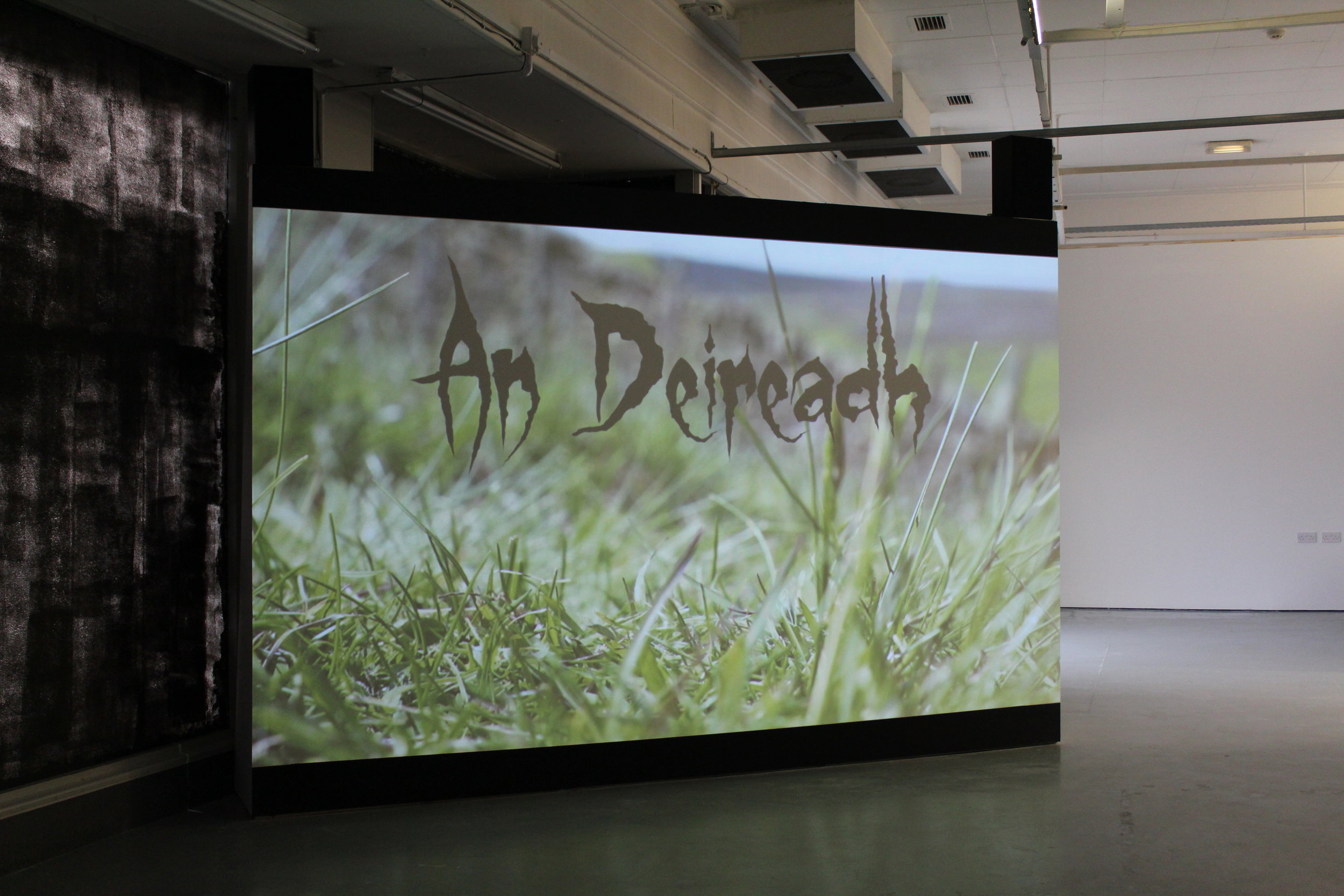Double Dropping on a Phantom Island
21 July - 13 August
The NewBridge Project, Gateshead
Free & open to all
Declan Colquitt
Michaela Cullen
For a new collaborative work, artists Michaela Cullen and Declan Colquitt explore ideas of recollection and the slippage of time through themes of Irish pilgrimage and Northern dance music. The artists will create a new installation ranging across different media including sculpture, sound and film.
In an attempt to define place and identity, both artists have moved backwards in time, locking into the inert temporalities of childhood, the suspended time of mythology and the acceleration of the recent past. These movements encompass remarks on delirium, displacement and lost futures.
A new film work will be presented by Michaela Cullen. Described by the artist as ‘sardonic sitcom pilgrimage’ this disorientating psychotropic story tries to understand friendship, upbringing and geographical landing. The three entities of the ‘Morrígna’, Badb, Macha and Nemain go on a detrimental journey of self-actualisation by way of self-accusation. The characters argue and meander in handmade costumes and are distinguished by their distorted cartoonish faces. The film is set in Hy-Brasil, a phantom island said to lie in the Atlantic Ocean west of Ireland. Irish myths described it as cloaked in mist except for one day every seven years, when it became visible but still could not be reached.
Built on site, purpose-built bleachers will loom and sulk in the space. Catholicism and organised religion are an ever present line of research in Michaela Cullen’s work, and seating is considered further in this new work. In spaces where we are manipulated to be seated, seating is created.
Working closely with Cullen, Declan Colquitt’s soundtrack is a visceral navigation of 00’s Northern dance culture. Through the use of early camera phones that were popular at the time, and were also instrumental in the dissemination of the music via infrared and bluetooth technologies, the artist creates a lo-fi digital soundscape which pulls in and out of Cullen’s narrative.
These camera phones also remain the predominant visual tool throughout the rest of Colquitt’s work, realised in unconventionally printed photographs, collages and film stills that exploit the limitations of the medium, and magnify the ambiguity or camoflauge of pixelation. These works will address the dark-vitality, nihilism and social atomisation Colquitt see’s as inextricably wrapped up in the dance music of the time.
As part of the exhibition, the artists will release a two part publication which will be available in the gallery and Newbridge Books following the exhibition. Although created separately, they will attempt to theoretically bridge gaps between works in the show through research, archiving and documentation.
Press:
This project is curated by Bloc Projects, Sheffield and Caustic Coastal, Manchester and forms part of The Great Exhibition of the North.
